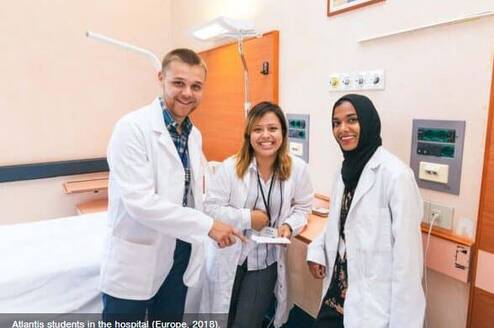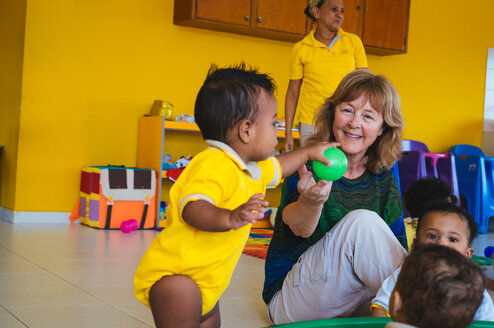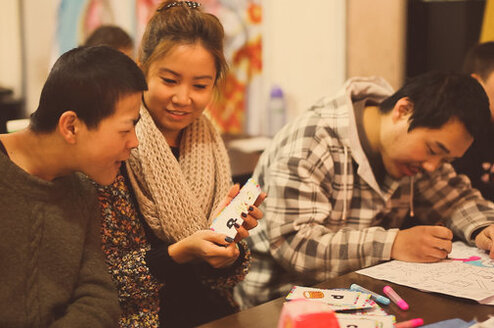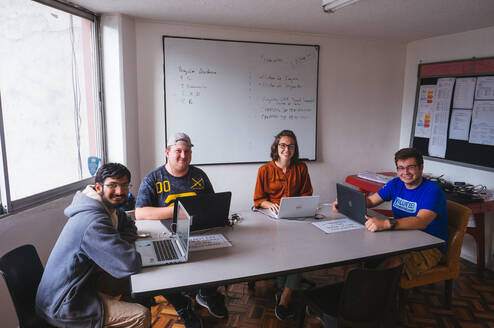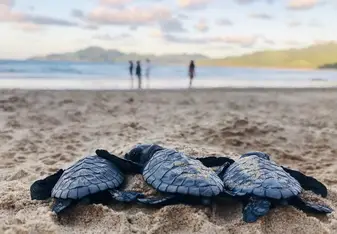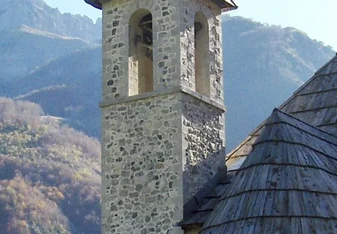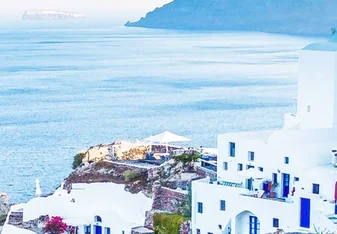Volunteer in Croatia
Volunteer Programs in Croatia
About
Opposite Italy across the Adriatic Sea, sandwiched between the ex-Yugoslav states of Slovenia, Montenegro, and Bosnia and Herzegovina, lays the ancient republic of Croatia. A culturally rich country, with breathtaking vistas, and landscapes ranging from clear blue waters to snowy mountains, Croatia is the crossroads of East and West Europe and the Mediterranean. Its tumultuous history reflects this with previous occupiers including Romans, Venetians, Ottomans and Hapsburgs. More recently, Croatia was at war with its neighboring states in the Balkan Wars in the 1990’s.
Although still recovering from the devastating impact of war and with some significant social, cultural and economic challenges to handle, Croatia is looking forward to its planned accession into the EU in 2013.
Program Types
Environment and Conservation
Due to historically low reliance on heavy industrial production, Croatia’s environment remains relatively unpolluted and well-preserved. As well as being spectacularly beautiful, its marine and terrestrial areas are considered to be truly unique and biologically diverse. Conservation here is moving in the right direction. The number of legally protected areas, such as national parks, is increasing. Croatia’s upcoming acceptance into the EU has also accelerated environmental conservation efforts. However, despite this, only a small proportion of Croatia’s total marine environment is formally protection. Government policy on environmental conservation is still developing in key areas such as fisheries, water and waste management as well as industrial and transport sectors, which can ultimately threaten future conservation success.
Volunteers can help improve conservation here by assisting NGO environmental action and animal rights organizations to increase awareness of environmental and animal welfare issues. Opportunities are also available that focus on conservation of endangered species, cultural and historical protection and ecotourism.
Community Development
During the Balkan war in the 90’s, a significant number of Croats were displaced within their own country or from war-torn neighboring regions. Large population movements occurred within Croatia and the other former Yugoslav states. Not surprisingly, both Croatian refugees from Bosnia and some nationals suffered severe psychological trauma. Some of the negative impacts on these already stressed people include reduced financial circumstances leading to poverty, a lack of access to education, changed family structures, a lack of social support and social disadvantage. Some areas of Croatia remain socially and economically depressed today.
Voluntary organizations try to address the negative social and cultural consequences of the war by implementing programs to help adults, children of refugees and returned Croats. Their initiatives aim to develop active involvement, co-operation and to empower these groups through across community action. Many volunteer programs are designed to work with youth and children in particular but opportunities exist to work with adults and families.
Youth Development
Youth unemployment in Croatia is generally very high due to the war and the global financial crisis but in depressed regions unemployment levels are far worse. Another special concern for youth is the entrenched social isolation between ethnic groups in some towns that starts from a very young age, contributing to community tensions.
Opportunities exist to work with children and youth in a number of areas. Programs involving volunteers can include development of cultural exchange and understanding between different ethnic groups, providing children of working parents with creative opportunities in after-school care, assisting with sports, and informal education and capability development to improve youth employment potential.
Education
While many younger Croatians speak English as their second language, older people usually do not. Volunteering opportunities to help locals wanting to improve their English can be often found in live-in situations with Croatian families or couples. The volunteer(s) will usually stay with the Croatians they are helping. In exchange for the English lessons, the hosts provide lodgings and food. These situations can be found via specialist language placement voluntary organizations or ad hoc on general volunteering sites.
Planning Your Trip
Volunteering Tips
Volunteer Support: The large, established voluntary organizations here are well-organized and offer solid support systems for volunteers. This includes assistance with learning the local language, specific volunteer training on associated interests and activities that they will be involved with, mentoring and provision of counselors to help with personal issues. There is capacity to learn volunteer organization and recruitment skills. Group leaders are provided with specific training to help them develop into their roles as well. Accommodation and meals are often supplied or facilitated at low cost to the volunteer.
Know Before You Go: Non-English speaking Croatians do not expect foreigners to speak their language but do appreciate any attempts by visitors to use local language for greetings and thanks. Croatians are extremely literate and staunchly proud of their artistic and cultural heritage. The past war is a sensitive subject and any conversations about this topic should be handled very diplomatically.
Best Places to Volunteer
Zagreb: A number of voluntary agencies are situated here in the country’s capitol covering youth work, gender equality, and health. The Volunteers Centre of Zagreb (VCZ) is one of the major organizations here and sets up work-camps in a range of Croatian locations including Zagreb, for international volunteers.
Vukovar: The Youth Peace Group Danube operates here. Vukovar is a historic area that was bombed in the Balkans war. Aside from being economically depressed, there are community problems arising from cultural and ethnic differences.
Kuterevo: The Bear Refuge Project is run near this small rural community by Velebit Association Kuterevo (VUK). Croatia has the second largest population of bears in Central Europe. The local bear population has dwindled recently due to post-war reconstruction. Volunteers help with everyday tasks in running the refuge which hosts orphaned Brown Bears. Basic rural housing is provided via the Volunteer station.
Gvozd: Suncokret Center for Community Development is located in Gvozd. Another town destroyed in the war, Gvozd is a resettlement area for refugees. The municipality faces many challenges including high unemployment, social disadvantage and cultural issues amongst different ethnic groups. Volunteers are needed to help with youth program development and implementation.
Losinj: A research project on the Bottle-Nosed dolphin is undertaken here in summer months, using volunteers to assist with data sampling and measurement, photography and organization. Much of the work is carried out in the waters surrounding the island when the weather is suitable. Volunteers have to pay a fee to join this scientific research project.
Cres: The endangered Griffon vulture is the main focus of the Eco-Center Caput Insulae at Beli. Volunteers here can assist in a variety of projects ranging from Griffon protection through to Eco-tourism and helping local inhabitants.
There are several other locations where volunteers are required. The European Youth Commission lists several other voluntary services in Croatia.
Health and Safety of Volunteers in Croatia
Travelers are advised to visit their doctor 6 to 8 weeks ahead of travel departure. Vaccinations against Hepatitis A, Hepatitis B, typhoid and tetanus-diphtheria are recommended, and if measles-mumps-rubella (MMR) immunizations have not been given (or were before 1956), this should be added to the list.
For those travelers who are planning to spend significant time outdoors and may be at risk of contact with animals it is advisable to obtain a rabies vaccination. In Croatia, tick-borne encephalitis can be a potential problem during summer and spring, for those visiting forested or rural areas. Tick avoidance measures should be implemented. During summer and early fall, insect repellant should be worn to avoid the risk of West Nile virus infections from the Culex mosquito which is particularly active after dusk.
Drinking from tap water in major cities is considered safe however rural water supplies cannot be guaranteed. It is recommended that water in rural areas be boiled, filtered or chemically disinfected before consumption. Travelers diarrhea is a common problem here as it is elsewhere, so appropriate medication should be carried into the country as a precaution.
While health care in Croatia is of a high standard generally, not all medications from overseas countries are available here. It is recommended that sufficient personal medication be brought in with prescription labeling in place and an accompanying letter from your physician. Visitors to Croatia may want to consider comprehensive travel insurance. For more information, please visit mdtravelhealth.com.
While Croatia is not known as a dangerous place for travelers, women traveling alone should be careful, and it may be safer to travel with a companion.
Contributed by Anne-Marie Watson


